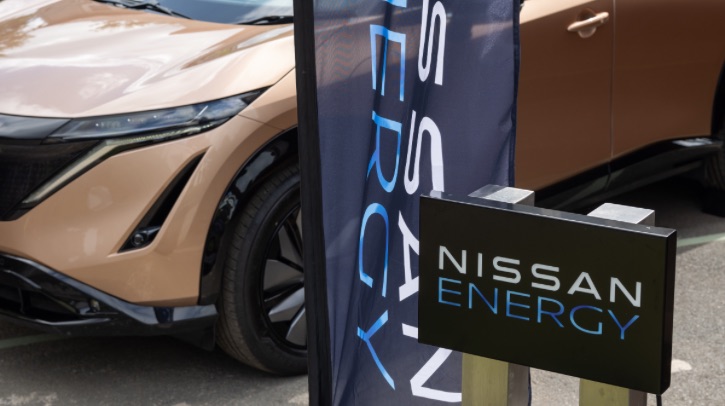
Nissan has announced it will introduce affordable onboard bi-directional charging on selected electric vehicles from 2026. The Vehicle to Grid (V2G) technology enables EV owners to use electricity stored in their car’s battery to power their homes or sell it back into the grid.
It will initially launch in the UK, followed by other markets in Europe. The project is underpinned by Nissan’s experience in V2G, with around 40 pilot projects conducted worldwide throughout the past decade.
This announcement comes after a successful year-long project at the University of Nottingham, UK. Nissan has become the first car company to gain G99 grid code certification with an AC-based solution, which is needed to supply electricity into the UK national energy supply. Under the banner of Nissan Energy, the company aims to roll out V2G technology across markets in Europe and more.
By using the brand’s V2G technology, customers can cut the annual cost of powering an EV by 50%, Nissan states. The same technology can also reduce net CO2 emissions from charging by 30% per year, per EV, for the average UK household. EVs equipped with V2G technology can play a crucial role in integrating and increasing the mix of renewables into the energy supply, by storing electricity generated by wind or solar, and directing it back into the grid when needed.
Nissan plans to offer its AC bi-directional charger at a price comparable to a mono-directional charger available today. It’s V2G system will also give customers complete control and flexibility over their energy via a dedicated app.
Hugues Desmarchelier, Nissan vice president, global electrification ecosystem and EV programs, said, “Nissan is proud to democratize technology for the benefit of society. The breakthrough in an onboard solution for two-way charging will be a substantial reduction in the cost of integrating a future EV into your energy supply, and the ability to leverage the car as a source of income over its lifecycle.”
The V2G UK trial has been partly funded by the UK government’s Advanced Propulsion Centre, a body established to support and accelerate the automotive industry’s transition toward net zero. During the trial, Nissan worked with several partners including Dreev and Enovates.
